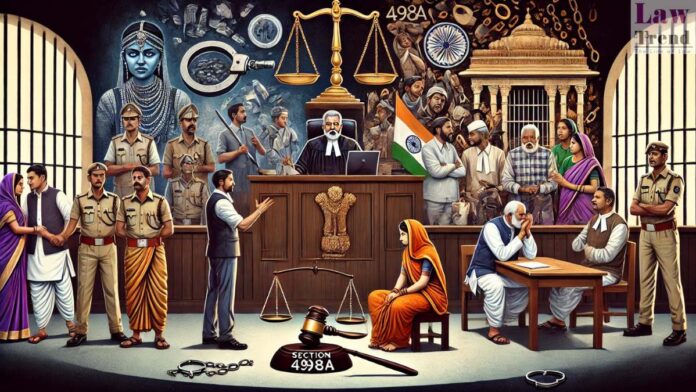In a judgment reiterating the need to prevent misuse of Section 498A of the Indian Penal Code, the Supreme Court has quashed criminal proceedings against three relatives of a husband, observing that vague and omnibus allegations made without specific details do not justify prosecuting family members in matrimonial disputes. The decision was rendered on April
To Read More Please Subscribe to VIP Membership for Unlimited Access to All the Articles, Download Available Copies of Judgments/Order, Acess to Central/State Bare Acts, Advertisement Free Content, Access to More than 4000 Legal Drafts( Readymade Editable Formats of Suits, Petitions, Writs, Legal Notices, Divorce Petitions, 138 Notices, Bail Applications etc.) in Hindi and English.




